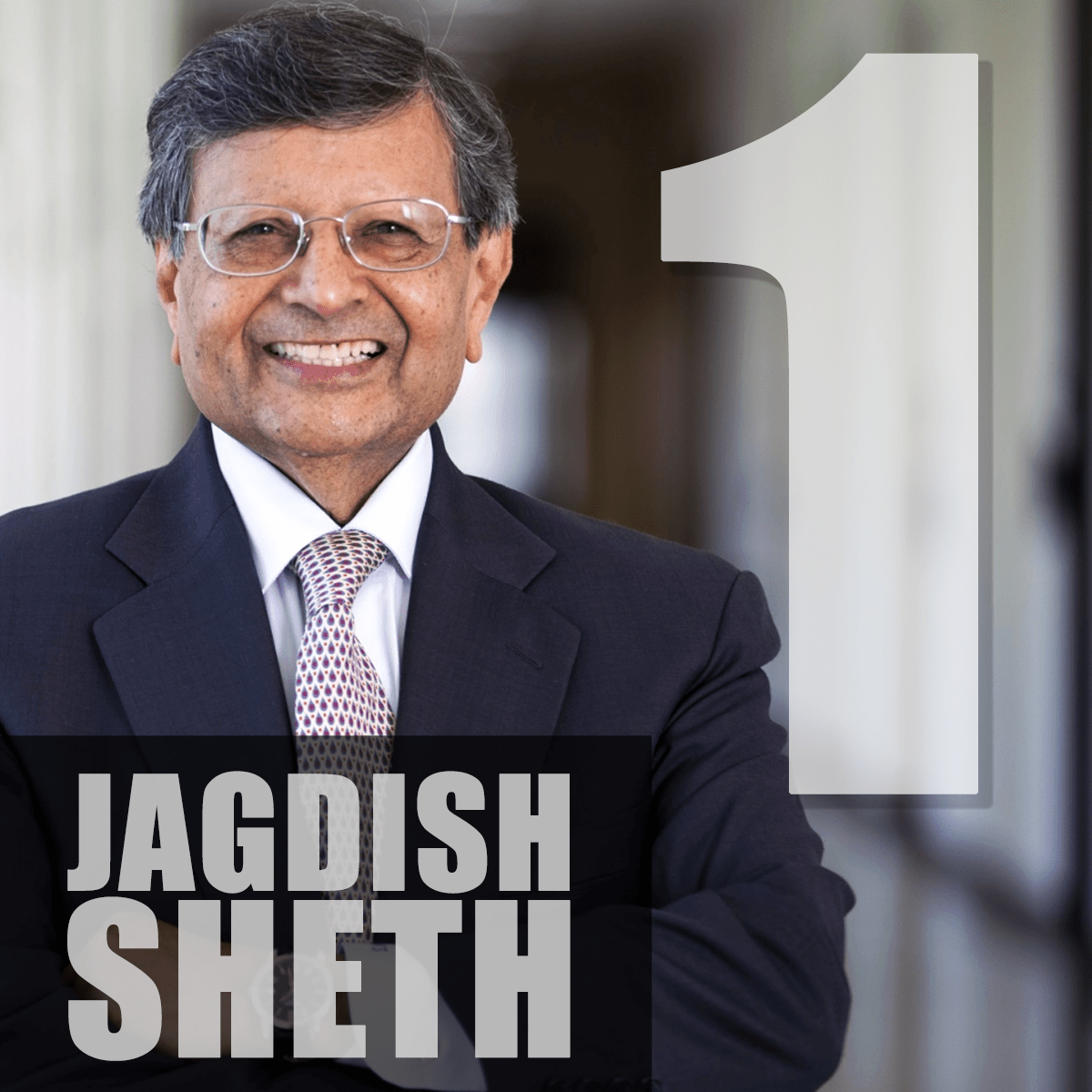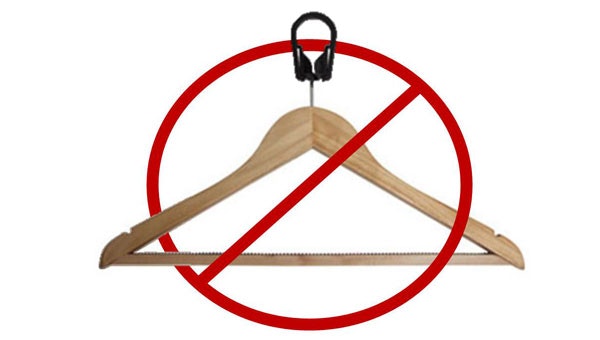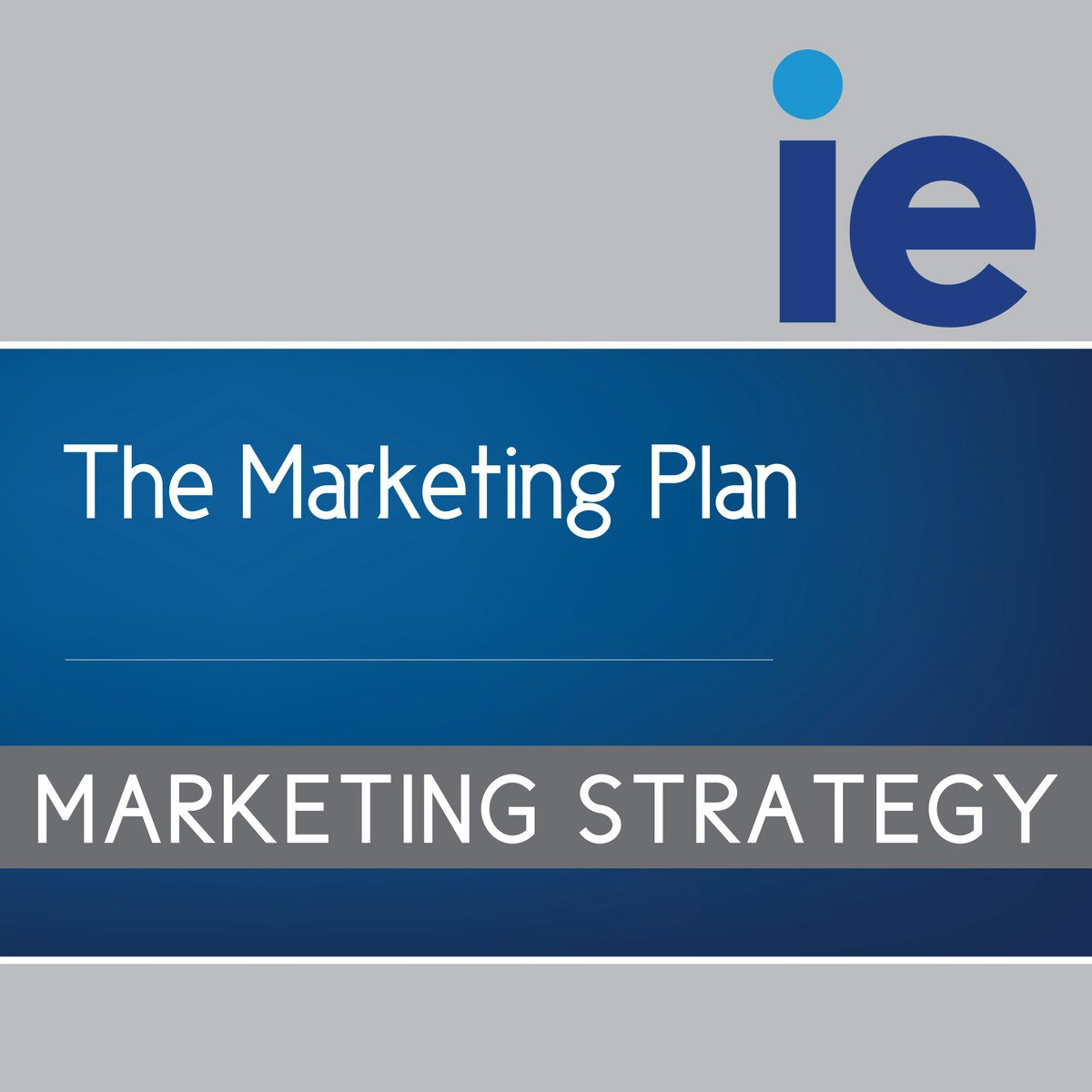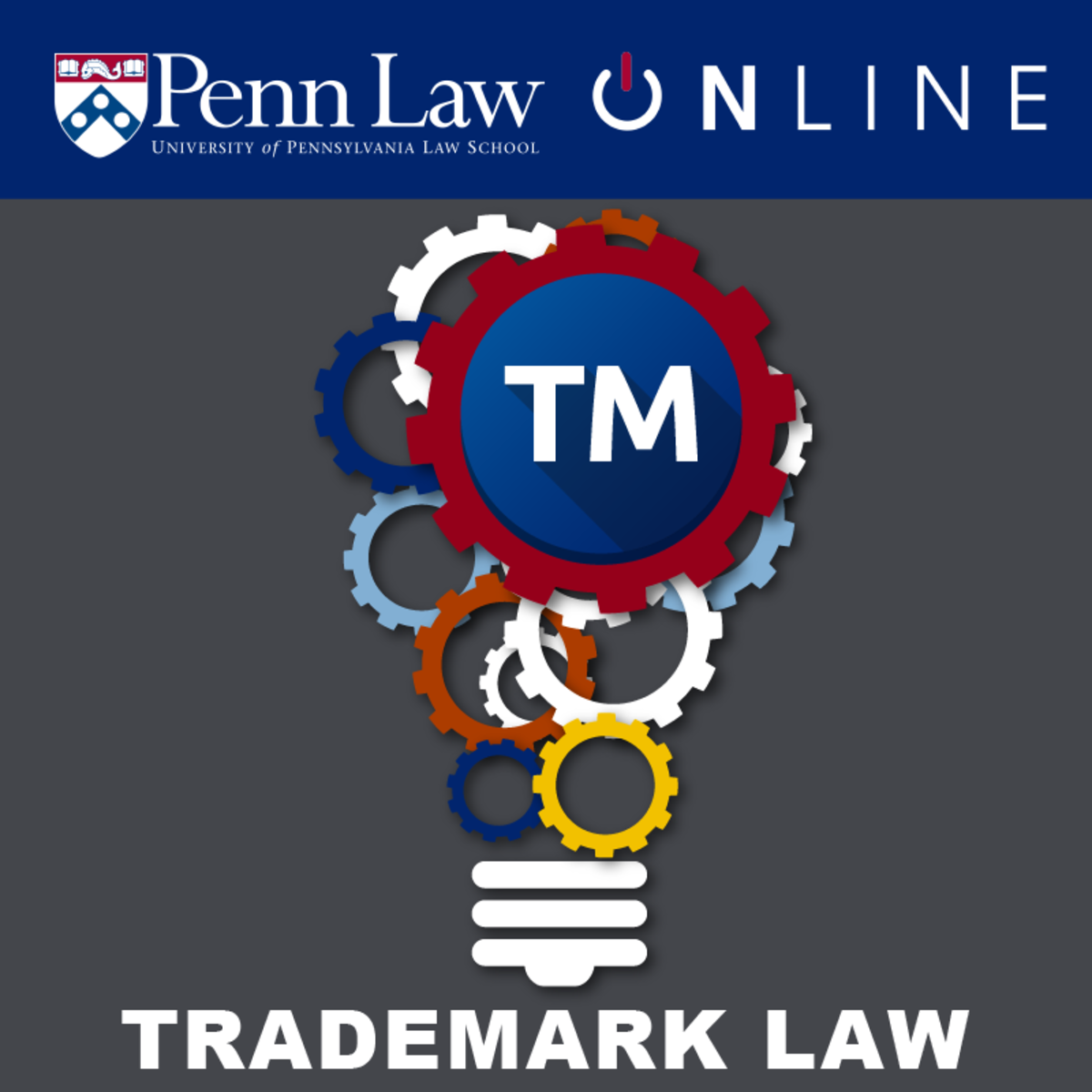Chief Marketing Officer
Chief Marketing Officer: A Comprehensive Career Guide
The Chief Marketing Officer (CMO) stands at the helm of a company's marketing efforts. This executive role involves shaping the brand's identity, driving market growth, and connecting with customers on a meaningful level. A CMO crafts the overarching marketing vision and ensures all campaigns and initiatives align with broader business objectives.
Working as a CMO can be incredibly dynamic. You'll blend creative thinking with sharp analytical skills to understand markets and customer behavior. The role often involves leading diverse teams, managing significant budgets, and navigating the ever-changing landscape of digital technology and consumer trends. It's a position that demands strategic foresight and adaptability.
Overview of the Chief Marketing Officer (CMO)
Defining the Role and Its Core Purpose
A Chief Marketing Officer (CMO) is a C-suite executive responsible for overseeing all marketing activities within an organization. Their primary goal is to develop and implement strategies that strengthen the company's market position, drive revenue growth, and enhance brand value. This involves a deep understanding of the market, the competitive landscape, and customer needs.
The CMO translates the company's business objectives into actionable marketing plans. They lead efforts in brand management, marketing communications (including advertising, promotions, and public relations), market research, product marketing, distribution channel management, pricing, and customer service.
Ultimately, the CMO acts as the chief advocate for the customer within the company. They champion a customer-centric approach, ensuring that the company's products, services, and messaging resonate with the target audience and build lasting relationships.
Key Industries for CMOs
CMOs are vital across nearly every industry, though their specific focus might vary. In consumer goods, they drive brand loyalty and manage product launches. Technology companies rely on CMOs to market complex products and navigate rapid innovation cycles. Financial services CMOs build trust and communicate value in a highly regulated environment.
Healthcare CMOs focus on patient engagement and communicating complex services. In retail, they drive foot traffic and e-commerce sales through omnichannel strategies. Media and entertainment CMOs build audiences and promote content. Even non-profits and government agencies employ marketing leaders to manage public perception and outreach.
Essentially, any organization that needs to connect with customers, build a brand, and drive growth benefits from the strategic leadership of a CMO. The ubiquity of the role highlights the fundamental importance of marketing in today's economy.
The Evolution of the CMO Role
The CMO role has transformed significantly over the past few decades. Traditionally focused on advertising, brand management, and communications, the position has expanded dramatically with the rise of digital technologies and data analytics. Today's CMO must be tech-savvy, data-driven, and customer-obsessed.
The digital revolution introduced new channels like social media, search engines, and mobile apps, demanding expertise in digital marketing. The explosion of customer data required CMOs to become adept at analytics, using insights to personalize experiences and measure ROI. The focus has shifted from broad campaigns to targeted, data-informed strategies.
More recently, CMOs are increasingly involved in overall business strategy, revenue generation, and customer experience management. The role now often encompasses growth hacking, technology stack management (MarTech), and sometimes even sales alignment, reflecting marketing's central role in driving business success.
Relationship with Other C-Suite Positions
The CMO works closely with other C-suite executives to ensure marketing strategies align with overall business goals. Collaboration with the Chief Executive Officer (CEO) is crucial for setting the strategic direction and ensuring marketing contributes to the company's vision. According to a 2025 study by Boathouse, CEOs increasingly recognize their CMOs' commitment, though translating that trust into perceived growth contribution remains an area of focus.
Partnership with the Chief Financial Officer (CFO) is vital for budget allocation, demonstrating marketing ROI, and aligning marketing spend with financial objectives. Working with the Chief Technology Officer (CTO) or Chief Information Officer (CIO) is essential for managing the marketing technology stack and leveraging data infrastructure.
The CMO may also collaborate with the Chief Operating Officer (COO) on go-to-market execution, the Chief Human Resources Officer (CHRO) on employer branding, and the Chief Sales Officer (CSO) or Chief Revenue Officer (CRO) to ensure seamless alignment between marketing and sales funnels. This cross-functional collaboration is key to the CMO's effectiveness.
Core Responsibilities of a Chief Marketing Officer
Strategic Brand Management
A core responsibility of the CMO is shaping and safeguarding the company's brand. This involves defining the brand's identity, values, and positioning in the market. The CMO ensures consistency in messaging and visual identity across all touchpoints.
They oversee brand strategy development, including defining target audiences and crafting compelling brand narratives. This requires understanding market trends and competitor activities to differentiate the brand effectively. Building brand equity and managing reputation are ongoing priorities.
The CMO leads efforts to build brand awareness and loyalty through various marketing activities. They monitor brand perception and adapt strategies as needed to maintain a positive and relevant image in the eyes of customers and the public.
Developing a strong brand requires understanding its core elements. These courses provide foundational knowledge in branding and strategic positioning.
Oversight of Marketing Campaigns
The CMO directs the planning, execution, and evaluation of all marketing campaigns, both digital and traditional. This includes advertising, public relations, content marketing, social media marketing, email marketing, and events.
They set campaign objectives, identify target audiences, and determine the optimal mix of channels and tactics. The CMO ensures campaigns are creative, engaging, and aligned with the overall brand strategy and business goals.
Monitoring campaign performance and analyzing results are crucial. The CMO uses data to assess effectiveness, optimize ongoing campaigns, and inform future strategies, ensuring resources are allocated efficiently to achieve maximum impact.
Mastering campaign execution across various channels is essential. These courses cover aspects of campaign planning and execution, including digital platforms.
Budget Allocation and ROI Measurement
Managing the marketing budget effectively is a critical function of the CMO. They are responsible for allocating financial resources across different marketing channels and initiatives to maximize return on investment (ROI).
This involves careful planning, forecasting, and tracking of expenditures. The CMO must justify marketing spend to other executives, demonstrating how investments contribute to revenue growth and other key business objectives. Proving marketing ROI is a consistent challenge and priority for CMOs.
CMOs utilize various analytics tools and methodologies to measure the effectiveness of marketing activities. They track key performance indicators (KPIs) such as customer acquisition cost (CAC), customer lifetime value (CLTV), conversion rates, and campaign ROI to make data-driven decisions about budget allocation.
Understanding how to plan and measure marketing investments is fundamental. These courses delve into marketing planning and ROI analysis.
Customer Experience and Market Research Leadership
The CMO plays a pivotal role in understanding and shaping the customer experience (CX). They lead market research efforts to gather insights into customer needs, preferences, behaviors, and satisfaction levels.
These insights inform product development, service improvements, and marketing strategies. The CMO works across departments, such as product development and customer service, to ensure a seamless and positive customer journey across all touchpoints.
Leading market research involves designing studies, analyzing data, and translating findings into actionable strategies. The CMO stays abreast of market trends, competitive activities, and emerging customer expectations to keep the organization agile and responsive.
Deeply understanding the customer is key to effective marketing. These courses focus on customer experience and analytics.
Skills and Competencies for Chief Marketing Officers
Data Analytics and Market Segmentation
Modern CMOs must be highly proficient in data analysis. They need the ability to interpret complex datasets related to customer behavior, campaign performance, and market trends to make informed strategic decisions.
Skills in data analytics allow CMOs to identify opportunities, optimize marketing spend, measure ROI effectively, and personalize customer experiences at scale. Understanding statistical concepts and data visualization tools is increasingly important.
Market segmentation, the process of dividing a broad market into smaller, defined groups of consumers, is another critical skill. CMOs use segmentation to tailor marketing messages and offerings to specific audience needs, improving campaign effectiveness and resource allocation.
Leadership and Cross-Departmental Collaboration
Strong leadership skills are non-negotiable for a CMO. They must inspire and guide their marketing teams, fostering a culture of creativity, accountability, and continuous learning. This includes setting a clear vision, managing performance, and developing talent.
CMOs rarely work in isolation. Effective cross-departmental collaboration is essential for aligning marketing efforts with sales, product development, finance, and other key functions. Building strong relationships and communicating effectively across the organization are vital competencies.
This requires strong interpersonal skills, negotiation abilities, and the capacity to influence stakeholders at all levels. Leading through influence rather than just authority is often key to driving integrated initiatives successfully.
Leadership and collaboration are crucial for executive roles. These courses offer insights into developing these essential skills.
Crisis Management and Adaptability
The business environment is often unpredictable. CMOs must be prepared to navigate crises, whether it's a public relations issue, a sudden market shift, or an internal challenge. This requires calm decision-making under pressure and effective communication strategies.
Developing crisis communication plans and being able to respond swiftly and transparently is crucial for protecting the brand's reputation. Learning from crises and adapting strategies afterward is also part of this competency.
Adaptability is paramount in the fast-paced world of marketing. CMOs must embrace change, quickly pivot strategies in response to new data or market conditions, and continuously experiment with new approaches and technologies.
Handling difficult situations and managing reputation are part of the job. This course touches upon reputation management in the digital age.
Emerging Technologies (e.g., AI in Marketing)
Staying abreast of emerging technologies is critical for CMOs. Artificial Intelligence (AI), machine learning, blockchain (Web3), and the metaverse are reshaping marketing possibilities and customer expectations.
Understanding how AI can enhance personalization, automate tasks, improve analytics, and optimize campaigns is becoming essential. CMOs don't need to be AI experts, but they must understand its potential applications and ethical implications. According to Forrester research, AI fluency is becoming a mission-critical CMO skill.
Likewise, exploring the potential of Web3 for community building, tokenization, and decentralized marketing requires forward-thinking. CMOs must lead their teams in experimenting with and adopting relevant new technologies to maintain a competitive edge.
Staying current with technology is vital. These courses explore AI's role in marketing and digital transformation.
Formal Education Pathways
Undergraduate Degrees
A bachelor's degree is typically the minimum educational requirement for starting a career that could eventually lead to a CMO position. Common fields of study include Marketing, Business Administration, Communications, or Economics.
These programs provide foundational knowledge in business principles, marketing concepts, consumer behavior, market research, and communication strategies. Coursework often includes subjects like statistics, finance, and management, which are valuable for a marketing leadership role.
While a specific major isn't always mandatory, a strong academic foundation combined with relevant internships or early work experience provides a solid starting point for a marketing career trajectory.
For those starting their journey, foundational business and marketing knowledge is key. Explore courses in Business and Marketing on OpenCourser.
MBA and Specialized Master's Programs
Many aspiring CMOs pursue graduate education, most commonly a Master of Business Administration (MBA). An MBA provides a broader understanding of business functions, including finance, operations, and strategy, which is highly valuable for C-suite roles.
MBA programs often offer concentrations in Marketing, allowing students to deepen their expertise. The networking opportunities and leadership development components of an MBA are also significant benefits for career advancement.
Alternatively, specialized master's degrees in Marketing, Digital Marketing, Marketing Analytics, or Integrated Marketing Communications offer focused expertise in specific areas relevant to the modern CMO role.
Advanced business and marketing strategy knowledge is often beneficial. These courses offer MBA-level insights and strategic thinking.
Relevant Certifications
While not always required, professional certifications can demonstrate specialized knowledge and commitment to the field. Certifications exist in various areas of marketing, such as digital marketing, content marketing, marketing analytics, and specific marketing platforms.
Examples include certifications from organizations like the American Marketing Association (AMA), the Digital Marketing Institute (DMI), or platform-specific certifications from Google or HubSpot. These can be particularly valuable for demonstrating expertise in rapidly evolving areas like digital marketing or marketing technology.
Certifications often require passing an exam and sometimes involve ongoing education to maintain credentials. They can supplement formal education and practical experience, enhancing a candidate's profile.
These courses cover broad marketing essentials or lead to project completion, simulating aspects of certification preparation or portfolio building.
PhD Routes for Research-Oriented Paths
While uncommon for typical CMO roles in industry, a Doctor of Philosophy (PhD) in Marketing or a related business field is an option for those interested in research, academia, or highly specialized consulting roles.
A PhD program involves rigorous research training, culminating in a dissertation that contributes original knowledge to the field. Graduates often pursue careers as university professors, researchers at think tanks, or advanced quantitative analysts ("quants") in specialized marketing firms.
For individuals aiming for a corporate CMO track, a PhD is generally not the standard path. However, the deep analytical and research skills gained can be valuable in certain data-intensive leadership roles within marketing.
Alternative Learning Pathways
Self-Guided Marketing Projects
Formal education isn't the only route. Demonstrating practical skills through self-guided projects can be highly effective, especially for career changers or those without traditional marketing degrees. This could involve creating a marketing plan for a fictional business, running a small social media campaign for a local organization, or analyzing publicly available market data.
These projects allow learners to apply theoretical knowledge, experiment with different tools and techniques, and build tangible results. Documenting the process, challenges, and outcomes of these projects is crucial for showcasing skills to potential employers.
Online platforms offer numerous opportunities to learn specific skills needed for such projects, from Search Engine Optimization (SEO) to graphic design or data analysis. You can often find free tools and resources to get started.
Portfolio Development Strategies
A strong portfolio is essential for showcasing marketing skills, regardless of educational background. It should contain examples of your work, such as campaign plans, market research reports, content samples (blog posts, social media updates), data analysis results, or website designs.
Focus on demonstrating tangible results whenever possible. Quantify achievements using metrics like engagement rates, conversion rates, or ROI. Tailor your portfolio to the types of roles you are targeting, highlighting the most relevant skills and experiences.
Building a professional website or using online portfolio platforms can effectively showcase your work. Continuously update your portfolio with new projects and achievements as you gain more experience.
Creating tangible outputs like marketing plans or digital assets is key for portfolio building. These project-based courses help develop practical skills.
Mentorship and Industry Networking
Building relationships within the marketing industry is invaluable. Networking can provide insights into career paths, industry trends, and potential job opportunities. Attending industry events (online or in-person), joining professional organizations (like the AMA), and engaging in online communities are effective ways to connect.
Seeking mentorship from experienced marketing professionals can provide guidance, support, and constructive feedback. Mentors can share their experiences, help navigate career challenges, and offer valuable advice tailored to your specific goals.
Informational interviews are another powerful tool. Reaching out to professionals in roles you aspire to can provide firsthand insights into their career journeys and the skills needed to succeed. Don't underestimate the power of building genuine connections.
Combining Non-Marketing Backgrounds with Marketing Skills
Individuals from diverse backgrounds can successfully transition into marketing, often bringing unique perspectives and skills. Someone with a background in psychology might excel at understanding consumer behavior, while an engineer might bring strong analytical skills to marketing analytics.
The key is to identify transferable skills and supplement them with specific marketing knowledge. Online courses are an excellent way to bridge skill gaps. Platforms like OpenCourser offer a vast library of courses covering everything from marketing fundamentals to advanced digital strategies.
Highlight how your unique background provides an advantage. Frame your experience in terms relevant to marketing roles, emphasizing problem-solving, communication, analytical thinking, or creativity developed in previous roles. This journey requires dedication, but many successful marketing leaders have non-traditional backgrounds.
For those pivoting or upskilling, online courses offer flexible ways to gain necessary marketing knowledge. OpenCourser's Learner's Guide provides tips on how professionals can effectively use online learning.
Consider this book for insights from practicing CMOs, potentially offering perspectives on diverse career paths.
Career Progression to CMO
Typical Entry-Level Roles
The journey to CMO typically begins in entry-level marketing positions. Common starting points include roles like Marketing Coordinator, Marketing Assistant, Social Media Specialist, Content Writer, or Marketing Analyst.
These roles provide foundational experience in specific marketing functions, exposure to campaign execution, and an understanding of team dynamics. Early career professionals focus on developing core skills, learning industry tools, and understanding basic marketing principles.
Gaining broad exposure across different marketing areas (e.g., digital, traditional, events, communications) early on can be beneficial for building a well-rounded skill set necessary for future leadership roles.
Mid-Career Stepping Stones
After gaining foundational experience, professionals typically advance to mid-level management roles. Titles such as Marketing Manager, Brand Manager, Digital Marketing Manager, Product Marketing Manager, or Communications Manager are common stepping stones.
In these roles, individuals take on more strategic responsibility, manage budgets, lead small teams or projects, and develop deeper expertise in specific marketing domains. Success at this level often involves demonstrating leadership potential and achieving measurable results.
Further progression might lead to roles like Senior Marketing Manager or Marketing Director, involving oversight of larger teams, broader strategic responsibilities, and significant budget management. Experience managing cross-functional projects becomes increasingly important.
These roles represent key milestones on the path towards senior leadership.
Upskilling is crucial for moving into management. These courses cover digital strategy and leadership evolution.
Average Time-to-Promotion Benchmarks
The timeline to reach the CMO level varies significantly based on individual performance, company size, industry, and opportunities. However, it typically requires substantial experience, often 15-20 years or more in the marketing field.
Progression usually involves several years in entry-level roles, followed by multiple years gaining experience and demonstrating success in mid-level and senior management positions. Each step up typically requires proven leadership capabilities and a track record of impactful results.
There is no guaranteed timeline. Factors like pursuing an MBA, gaining diverse industry experience, successful networking, and demonstrating strategic vision can potentially accelerate the path, but patience, persistence, and continuous learning are essential.
Transitioning from Adjacent Fields
It's possible to transition into senior marketing leadership roles, including CMO, from adjacent fields. Professionals in Sales, Product Management, Communications, or even Strategy Consulting often possess relevant skills and experiences.
For example, Sales leaders understand customer acquisition and revenue generation. Product Managers have deep customer and market insights. Communications professionals excel at messaging and reputation management. Consultants bring strategic thinking and analytical rigor.
Successful transitions usually involve acquiring specific marketing expertise, often through targeted learning (like online courses or certifications), demonstrating adaptability, and leveraging transferable skills effectively. Building a strong network within the marketing community is also crucial for those making a lateral move into the field.
The CMO Role: A Senior Leadership Position
Understanding the Seniority Level
It's crucial to understand that the Chief Marketing Officer role is a senior executive position, typically part of the C-suite alongside the CEO, CFO, and COO. It is not an entry-level or mid-career role; reaching this level requires extensive experience, proven leadership, and a strong track record of success.
CMOs are responsible for high-level strategic decisions that impact the entire organization. They manage large teams, control significant budgets, and are accountable for driving measurable business results, such as market share growth, revenue generation, and brand equity.
Aspiring CMOs should view this as a long-term career goal. The journey involves progressively taking on more responsibility, developing a broad range of marketing and business skills, and consistently demonstrating strategic thinking and leadership capabilities over many years.
Experience and Track Record Required
Companies typically look for CMO candidates with 15+ years of progressive marketing experience, including substantial time in leadership roles (e.g., Director or VP level). A demonstrated history of developing and executing successful marketing strategies is essential.
Candidates need to show quantifiable achievements, such as launching successful products, significantly increasing market share, improving brand perception, or driving substantial revenue growth through marketing initiatives. Experience managing large budgets and complex projects is also expected.
Beyond functional expertise, companies seek strategic vision, strong business acumen, exceptional communication skills, and the ability to lead and inspire large, diverse teams. A deep understanding of the specific industry and market dynamics is often crucial as well.
Setting Realistic Expectations
For those aspiring to become a CMO, it's important to have realistic expectations. The path is long and demanding, requiring continuous learning, adaptation, and resilience. Not everyone who starts in marketing will reach the C-suite.
Focus on excelling in your current role, actively seeking opportunities for growth and leadership development, and building a strong professional network. Celebrate milestones along the way, such as promotions to manager or director levels, as significant achievements in their own right.
Even if the ultimate goal of CMO isn't reached, a successful career in marketing offers many rewarding senior roles with significant impact. Embrace the journey of learning and contribution at every stage.
This book provides real-world perspectives from those who have reached the CMO level, offering valuable insights into the journey.
Global Demand & Market Trends
Salary Expectations and Regional Variations
CMO compensation varies widely based on factors like company size, industry, location, and individual experience. In the United States, average base salaries can range significantly, potentially from around $180,000 to over $300,000 annually, according to various 2024/2025 salary reports like those from Payscale and Salary.com. Total compensation, including bonuses and profit sharing, can push these figures considerably higher, sometimes exceeding $340,000 or more at larger enterprises.
Salaries tend to be higher in major metropolitan areas with a high cost of living and a concentration of large companies, such as San Francisco or New York. For instance, one report noted CMOs in San Francisco earning nearly 40% above the national average. Industry also plays a role, with sectors like technology and finance often offering higher compensation packages compared to non-profits or smaller organizations.
Globally, compensation levels differ based on regional economic conditions and market demand. For example, CMO salaries in the UK might range from £130,000 to £220,000, according to a 2025 UK salary guide by 3Search. Researching salary benchmarks specific to the target region and industry is crucial.
Impact of Remote Work
The rise of remote and hybrid work models has impacted C-suite roles, including the CMO. While some level of remote flexibility exists, the trend seems to be shifting back towards more in-office presence for senior leadership compared to the peak of remote work adoption. Data suggests C-suite executives are often more willing to return to the office than non-management staff, possibly due to the collaborative nature of their roles.
Some studies indicate a decrease in fully remote CMO positions being offered. For example, Ad Age reported a drop in remote CMO hires from 23% in 2023 to 13% in 2024. However, hybrid models remain prevalent, offering a balance between in-person collaboration and flexibility. The feasibility of remote leadership can depend heavily on the industry, with tech and finance potentially more adaptable than manufacturing or retail.
Challenges of remote leadership include maintaining company culture, fostering spontaneous collaboration, and ensuring strong communication. While technology enables remote work, organizations are still navigating the optimal balance for executive roles requiring strategic alignment and team inspiration.
Industry-Specific Demand Variations
Demand for CMOs fluctuates across industries. Technology, financial services, and healthcare often show strong demand due to rapid innovation, competitive pressures, and the need for sophisticated customer engagement strategies. Recent hiring data showed significant activity in these sectors.
Conversely, some industries, particularly traditional industrial sectors, may have historically had fewer centralized CMO roles, although this is changing. Spencer Stuart noted that while industrial companies were least likely to have CMOs, the rate of marketing leadership in that sector has increased.
Company structure also influences demand. Some organizations opt for different titles like Chief Growth Officer or Chief Customer Officer, or distribute marketing leadership across business units rather than having a single enterprise-wide CMO. Recent data suggests around a third of Fortune 500 companies may not have a formally titled enterprise CMO, though this figure can fluctuate based on organizational strategies.
Cultural Adaptation Challenges
For CMOs operating in global markets or leading diverse international teams, cultural adaptation is a significant challenge and competency. Marketing messages, brand positioning, and campaign tactics must resonate with local cultural nuances and consumer behaviors.
Understanding different communication styles, consumer protection regulations, media landscapes, and social norms across various regions is crucial. A strategy successful in one market may be ineffective or even detrimental in another.
Global CMOs need high cultural intelligence (CQ), empathy, and the ability to build and manage multicultural teams. This often involves empowering regional marketing leaders and fostering a collaborative environment that respects local insights while maintaining global brand consistency.
Ethical Considerations in Modern Marketing Leadership
Data Privacy and Regulatory Compliance
Modern marketing relies heavily on customer data, making data privacy a paramount ethical concern. CMOs must ensure their organizations collect, store, and use customer data responsibly and transparently, complying with regulations like GDPR in Europe and CCPA in California.
This involves obtaining proper consent, safeguarding data against breaches, and being transparent about data usage practices. The ethical use of AI in analyzing customer data requires particular attention to avoid intrusive or manipulative practices. Building customer trust through responsible data stewardship is crucial.
CMOs need to foster a culture of privacy awareness within their teams and ensure compliance is integrated into all marketing processes and technologies. Failure to do so can result in significant legal penalties and severe damage to brand reputation.
Understanding legal frameworks around data is important. This course touches upon trademark law, related to brand protection.
Greenwashing and Sustainability Claims
As consumers increasingly prioritize sustainability, brands face pressure to demonstrate environmental responsibility. However, this also creates the risk of "greenwashing"—making misleading or unsubstantiated claims about a product's or company's environmental benefits.
CMOs have an ethical responsibility to ensure all sustainability marketing claims are accurate, verifiable, and transparent. This involves working closely with product development and operations teams to understand the true environmental impact and communicating honestly with consumers.
Authentic commitment to sustainability, integrated into the core business strategy and reflected in marketing practices, builds trust. Misleading claims, once exposed, can severely damage brand credibility and alienate environmentally conscious consumers.
Diversity, Equity, and Inclusion (DEI) in Marketing
Marketing shapes cultural narratives and influences perceptions. CMOs have a responsibility to promote diversity, equity, and inclusion (DEI) both within their marketing teams and in the campaigns they create.
This means ensuring diverse representation in advertising and communications, avoiding harmful stereotypes, and reflecting the true diversity of the customer base and society. It also involves building inclusive marketing teams with diverse backgrounds and perspectives.
Furthermore, algorithmic bias in AI-driven marketing tools can perpetuate or even amplify existing societal biases if not carefully managed. CMOs must be vigilant in auditing their tools and practices to ensure fairness and avoid discriminatory outcomes in targeting or messaging.
Building diverse teams is part of ethical leadership. This course covers aspects of attracting diverse candidates.
Balancing Profitability with Social Responsibility
CMOs navigate the inherent tension between driving business growth and profits, and acting in a socially responsible manner. Short-term revenue goals must be balanced against long-term brand reputation and ethical considerations.
This involves making ethical choices in areas like advertising content, targeting practices (especially towards vulnerable groups), product claims, and overall corporate citizenship. It requires a commitment to values-based leadership that prioritizes integrity alongside performance.
Leading ethically means considering the broader societal impact of marketing decisions and fostering a corporate culture where ethical behavior is expected and rewarded. This approach builds sustainable brand value and fosters trust with customers, employees, and the community.
The Future: CMO & Technology
AI-Driven Consumer Analytics and Personalization
Artificial Intelligence (AI) is revolutionizing how marketers understand and engage with customers. AI algorithms can analyze vast amounts of data to uncover deep insights into consumer behavior, preferences, and intent, enabling more sophisticated segmentation and targeting.
This leads to hyper-personalization, where marketing messages, offers, and experiences are tailored to individual consumers in real-time. While powerful for engagement, CMOs must navigate the ethical challenges associated with AI personalization, ensuring transparency and respecting privacy, as highlighted in recent articles from Forbes and research repositories.
CMOs need to guide their teams in leveraging AI analytics effectively while upholding ethical standards. This involves selecting the right tools, ensuring data quality, and maintaining human oversight over AI-driven decisions.
Mastering AI for marketing is becoming crucial. These courses focus on AI applications in personalization and business strategy.
Metaverse and Web3 Marketing Strategies
Emerging digital frontiers like the Metaverse and Web3 present new opportunities and challenges for marketers. The Metaverse offers immersive virtual environments for brand experiences, virtual goods, and community engagement.
Web3, based on blockchain technology, emphasizes decentralization, tokenization, and community ownership. Marketing in Web3 often involves engaging with crypto communities, leveraging NFTs (Non-Fungible Tokens), and building trust through transparency and participation. Strategies may focus on community building and leveraging tokenomics.
CMOs need to explore these new landscapes, understand the underlying technologies and cultures, and experiment with innovative strategies. While still evolving, these areas could significantly impact future customer engagement and brand building.
Understanding Web3 requires specific knowledge. While no specific courses were provided, exploring resources like Web3 marketing guides can be beneficial.
Integration of Marketing Technology (MarTech) Stacks
The modern marketing department relies on a complex ecosystem of software tools known as the Marketing Technology (MarTech) stack. This can include platforms for CRM, email marketing, social media management, marketing automation, analytics, content management, and more.
CMOs are responsible for overseeing the selection, integration, and optimization of the MarTech stack. The goal is to create a seamless workflow, enable data sharing across platforms, and empower the marketing team with the right tools to execute strategies efficiently.
Managing the MarTech stack requires strategic planning, collaboration with IT departments, and ongoing evaluation to ensure technologies are delivering value and adapting to changing needs. Expertise in platforms like HubSpot or Mailchimp can be beneficial at various career stages.
Familiarity with common marketing tools is helpful. These courses cover popular platforms.
Ethics of Personalized Advertising
Personalized advertising, powered by data and AI, allows brands to deliver highly relevant ads to specific individuals. While this can improve user experience and campaign effectiveness, it raises significant ethical questions.
Concerns include the potential for manipulation by exploiting psychological vulnerabilities, the risk of reinforcing biases and discrimination through targeting, and the lack of transparency in how targeting decisions are made. Consumers may feel their privacy is invaded or that they are being unfairly profiled.
CMOs must establish clear ethical guidelines for personalized advertising. This includes being transparent about data use, providing users with control over their preferences, avoiding exploitative tactics, and regularly auditing algorithms for bias. Balancing personalization benefits with ethical responsibilities is a critical leadership challenge.
Related Roles in the Ecosystem
Chief Growth Officer (CGO)
The Chief Growth Officer (CGO) is a role that sometimes overlaps with or replaces the CMO. The CGO typically has a broader remit focused explicitly on driving revenue growth across all relevant departments, including marketing, sales, product, and sometimes customer success.
While a CMO focuses primarily on the marketing function's contribution to growth, a CGO takes a more holistic view, looking for growth opportunities across the entire customer lifecycle and business model. This role often emphasizes data analysis, experimentation, and cross-functional alignment purely through the lens of growth.
The rise of the CGO title reflects the increasing pressure on companies to demonstrate growth and the recognition that growth is often a cross-functional effort, not solely the domain of marketing.
Chief Brand Officer (CBO)
In some organizations, particularly large consumer brands, a Chief Brand Officer (CBO) role exists alongside or instead of a CMO. The CBO focuses exclusively on building and managing the company's brand identity, reputation, and narrative.
Their responsibilities center on brand strategy, brand architecture, corporate communications, and ensuring brand consistency across all touchpoints. While a CMO typically oversees brand management as part of a broader portfolio, the CBO provides dedicated leadership solely focused on the brand as a strategic asset.
This role emphasizes storytelling, creative direction, and long-term brand building, often working closely with the CMO or CEO to align brand strategy with business objectives.
Chief Revenue Officer (CRO) / Chief Customer Officer (CCO)
Other related C-suite roles include the Chief Revenue Officer (CRO) and Chief Customer Officer (CCO). The CRO is typically responsible for all revenue-generating processes, often overseeing both sales and marketing teams to ensure tight alignment and accountability for revenue targets.
The Chief Customer Officer (CCO) focuses on the entire customer experience journey, advocating for the customer across all departments (including marketing, sales, service, product) to drive loyalty and retention. While the CMO often champions the customer, the CCO provides dedicated executive leadership for customer-centricity.
The presence and specific responsibilities of these roles (CMO, CGO, CBO, CRO, CCO) vary depending on the company's structure, industry, and strategic priorities, reflecting the evolving nature of executive leadership in marketing, sales, and customer engagement.
Frequently Asked Questions
Can you become a CMO without an MBA?
Yes, absolutely. While an MBA can be beneficial for developing broad business acumen and leadership skills, it is not a strict requirement for becoming a CMO. Many successful CMOs have reached the position based on extensive practical experience, a strong track record of results, and demonstrated leadership capabilities.
Relevant industry experience, continuous learning (through courses, certifications, or self-study), strong networking, and proven success in progressively senior marketing roles are often more critical than a specific graduate degree.
However, an MBA can be an accelerator for some, providing valuable knowledge and connections. The decision to pursue an MBA depends on individual career goals, existing experience, and personal circumstances.
How does CMO compensation compare to other executives?
CMO compensation is typically competitive within the C-suite but can vary. Generally, CEO compensation is the highest. CMO salaries often fall within a similar range to other C-level executives like the CFO, CTO, or COO, but specifics depend heavily on the company and industry.
Factors influencing CMO pay relative to peers include the strategic importance placed on marketing within the organization, the CMO's direct impact on revenue, the size and complexity of the marketing function, and individual performance and experience.
According to Salary.com data for early 2025, the average US CMO salary was around $316,048, with ranges potentially overlapping significantly with other C-suite roles depending on the context.
Is the CMO role threatened by AI automation?
AI is transforming marketing, automating many tasks previously done by humans. However, it's unlikely that AI will completely replace the CMO role. While AI excels at data analysis, task automation, and even content generation, it currently lacks the strategic thinking, creativity, emotional intelligence, ethical judgment, and leadership skills required of a CMO.
AI is better viewed as a powerful tool that can augment the CMO's capabilities, freeing them up for higher-level strategy, innovation, and leadership. Research suggests marketers expect AI to eliminate busy work, allowing more focus on strategy. Experts believe AI won't replace the emotional components of marketing.
CMOs who embrace AI, understand its capabilities and limitations, and lead their teams in leveraging it effectively are more likely to thrive. AI fluency is becoming a key competency, not a replacement for leadership. Thus, AI is reshaping the role, not eliminating it.
What industries have the highest CMO turnover?
The CMO role has historically experienced higher turnover rates compared to other C-suite positions, although recent data suggests some stabilization. Certain industries tend to see more frequent changes in marketing leadership.
According to a Taligence report cited by Ad Age covering 2023/2024 data, industries with notably high CMO attrition included restaurants, financial services, and biotech/pharmaceuticals/healthcare.
Reasons for high turnover can include intense pressure to deliver results quickly, misalignment between CEO expectations and CMO capabilities, rapidly changing market dynamics requiring different skill sets, or the CMO role being seen as a stepping stone to CEO or other opportunities.
How do you transition from a startup CMO to an enterprise CMO role?
Transitioning from a startup CMO to an enterprise CMO involves navigating significant differences in scale, structure, and complexity. Startup CMOs often wear many hats and operate with limited resources, focusing on rapid growth and agility. Enterprise CMOs manage larger teams, bigger budgets, and more complex organizational structures, often dealing with established processes and brand legacies.
To make the transition, highlight experience in scaling marketing functions, managing P&L responsibility (if applicable), demonstrating strategic thinking applicable to larger markets, and leading diverse teams. Emphasize adaptability and data-driven decision-making.
Networking within larger corporations, potentially pursuing additional education or executive training, and showcasing an understanding of complex stakeholder management and corporate governance can strengthen a candidate's profile for an enterprise role.
Do CMOs typically become CEOs?
While not the most common path, a growing number of CMOs are transitioning into CEO roles. Marketing experience provides valuable skills for a CEO, including customer centricity, strategic thinking, brand building, and understanding market dynamics.
Recent studies show promising trends. A 2025 Spencer Stuart study found that 10% of exiting Fortune 500 CMOs became CEOs, and 37% of current Fortune 500 CEOs had marketing experience in their background. Another study found about one-third of CEOs believe their CMO could potentially become a CEO.
However, the path often requires broadening experience beyond marketing, gaining strong financial acumen, operational understanding, and demonstrating enterprise-wide leadership capabilities. While increasingly viable, the CMO-to-CEO transition still requires significant development and strategic career planning.
The journey to becoming a Chief Marketing Officer is challenging, demanding years of dedication, continuous learning, strategic thinking, and proven leadership. It's a role that sits at the intersection of creativity, data, technology, and business strategy, offering the potential to shape brands and drive significant organizational impact. While the path is rigorous, the opportunities for growth and contribution within the dynamic field of marketing are vast, making it a compelling aspiration for ambitious marketing professionals.

































